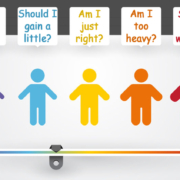The Best Heart-Healthy Diet
In assessing popular diets to find out which one follows the AHA heart-healthy dietary guidelines the best, the panel did a credible job. Instead of just using their expertise, which is substantial, they developed an objective way of assessing each popular diet. They did have one diet that received a point for each of the nine categories thus achieving 100%. That was the Dietary Approach to Stop Hypertension more commonly known as the DASH diet.
The researchers then assessed the dietary patterns and organized them into four tiers based on compliance with the AHA guidelines. I’ll break it down into the tiers for you.
Tier 1
This tier includes the DASH diet, the Mediterranean diet, the pescatarian or fish as protein, and the ovo-lacto vegetarian diets. The primary reason that the DASH diet ranked so high was its ability to get protein from every source: plant proteins such as nuts and legumes, fish and seafood, low-fat or fat-free dairy, and the ability to use lean cuts of all meats. The other diets in Tier 1 either did not recommend proteins from all sources or did not emphasize reducing the amount of salt intake, a key element of the DASH diet.
Tier 2
Tier 2 included the vegan diet and other low-fat diets. Their strength, of course, is the emphasis on vegetables and fruits as well as whole grains, but they all seek to use plant-based protein. Some of the low-fat diets can be quite extreme, such as the Esselstyn Program which restricts fat to less than 10% per day and restricts protein as well.
Tier 3
This included the very low fat diets as well as the low-carbohydrate diets. The reason these two are put together is the restriction on quality protein sources as well as whether people adhere to the diet at every meal.
Tier 4
The paleo diet and very low carbohydrate diets such as the ketogenic diet received the worst scores; that means they fall into the category of not being heart healthy at all.
Other Considerations
The panel also considered three primary issues. The first was how easy it would be to facilitate patients to adapt to the particular diet. To me, the strength of the DASH diet and to some degree the Mediterranean diet is the variety of proteins that can be used. When you get into the very low fat and the very low carbohydrate diet, the restrictions can become overwhelming for most people.
They also considered the challenges for the consumers. In my experience, there are always going to be questions about what could be included in any dietary approach, whether it’s the Mediterranean diet or the ketogenic diet. In order for people to adapt the diet, they need instruction and they need to be able to ask questions; those would be significant challenges when recommending the diets that restrict foods allowed, which could either be vegan, the very low fat, or the ketogenic diet.
The final consideration is the opportunities presented to provide patients with good information about the diet. The problem as I see it is that physicians, physician assistants, and nurse practitioners are not familiar enough with nutrition to be able to do that effectively in a medical practice, especially considering the time constraints for most healthcare practitioners. The obvious choice is to refer it to a dietetics department, but that type of consultation is not very often available in most medical practices and especially under most health insurance programs. I think the challenges are going to take years to overcome.
My Thoughts
I thought the researchers did a credible job in coming up with their recommendations. They analyzed popular diets objectively and assessed them based on the AHA Dietary Guidance.
What is lost is exactly how this is going to help people. Since 1974, more fruits and vegetables and a limit on fat intake were recommended as the foundation of every diet. No matter how many diets have come and gone, no matter how many are yet to be developed, we have not achieved the simplest and yet most obvious objectives. Food manufacturers certainly have had a role to play in this with low-fat and ultra-processed convenience food, but the choice is always with us.
There are three more things that I think must be considered. First would be the individual’s genetic tendencies. We simply don’t know enough about interaction between genes and nutrition and how that impacts input. Second, protein needs change over a lifetime. At some point, proteomics must be considered in dietary recommendations; it isn’t all about your heart.
Finally, they specifically did not consider the potential for weight loss or weight maintenance in every program. Regardless of diet, it was, it is, and it will always be about the calories. If someone can get to a normal body weight and maintain it, I think there might be room for just about any type of diet, providing it provides enough vegetables and fruits.
The Bottom Line
As the lead author suggested in an interview, there were four recommendations across all popular diets: eat whole foods, eat more non-starchy vegetables, eat less added sugar, and eat less refined grains. If we could start with that, I think our hearts would love us for it.
What are you prepared to do today?
Dr. Chet
Reference: https://www.ahajournals.org/doi/10.1161/CIR.0000000000001146









